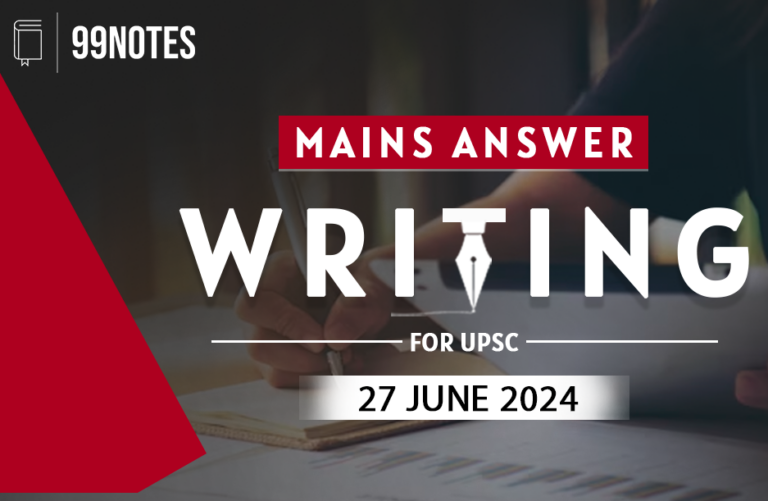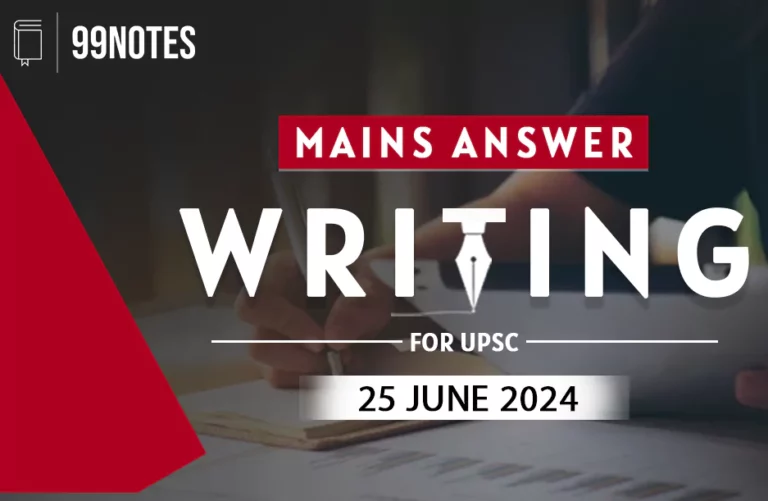22 Feb 2024 : Daily Answer Writing
Q1) In a democratic society, individual rights and freedoms are always balanced against the larger interests of society and the state. To what extent do the constitutional restrictions on fundamental rights strike a balance between individual liberty and societal interests? What factors are considered in evaluating the reasonableness of such restrictions? Refer to the case laws.
(250 Words/ 15 Marks)
ANSWER
The Constitution of India provides several rights and freedoms that empower the individual. However, it also balances these freedoms with prescribed restrictions in the larger public interest. The courts have interpreted and applied these provisions to balance the individual rights and social interests.
The constitutional restrictions on fundamental rights strike a balance between individual interests and societal interests in the following ways:
- While Article 15 exhorts the state to be neutral and not discriminate on the grounds of religion, race, caste, sex, or place of birth, it does make an exception to accommodate larger good of vulnerable communities.
E.g., reservation of seats for women in local bodies; provision of free education for children etc.
- Article 16 guarantees equality of opportunity in matters of public employment. However, there are exceptions for the implementation of affirmative action for the benefit of any backward class of citizens to ensure adequate representation in public service.
- Article 19 of the Constitution guarantees six fundamental freedoms to citizens, including the right to freedom of speech and expression. However, these rights are subject to certain reasonable restrictions in the interest of the sovereignty and integrity of India, security of the state, friendly relations with foreign states, public order, decency, morality, contempt of court, defamation, and incitement to an offence.
- Article 21 of the Constitution guarantees the right to life and personal liberty, but it is not absolute. The state can deprive a person of his life or personal liberty through procedure established by law.
- Article 25 guarantees all persons the freedom of conscience and the right to preach, practice and propagate any religion of their choice. This right is, however, subject to public order, morality and health, and the power of the State to take measures for social welfare and reform. It also does not include the right to convert.
The Supreme court in India has the power to judge the reasonableness of restrictions in question. The judiciary looks at the facts and circumstances of each case to arrive at any conclusion. There are certain guidelines, which the courts should follow to determine whether the restrictions imposed are reasonable or not.
The following factors are considered in evaluating the reasonableness of restrictions on fundamental rights
- Proportionate Nexus: The restrictions to be imposed should not be excessive and beyond what is needed in the larger interest of the society.
E.g., In Shreya Singhal v. Union of India, the Supreme Court struck down Section 66-A of the IT Act on the ground that it gave unfettered discretion to the executive.
- The restrictions can be imposed only through law and not through some departmental instructions or executive order (Chintaman Rao vs State of MP).
- Administrative discretion is exercised in accordance with the principles of justice, reason and evidence to differentiate between right and wrong. The decision cannot be based on the private opinion or whims and fancies of the government.
- Compliance with procedural and substantive reasonableness is required (NB Khare vs State of Punjab).
- The reasonableness is to be determined by an objective standard and not subjective one i.e., the viewpoint of the normal reasonable man must be considered (State of Madras v. V.G. Row).
Reasonable restrictions are necessary to keep the fine balance between individual liberty and social interests. The courts have interpreted and applied these provisions to maintain this fine balance as per the cases in contention.
Upload Answer here




